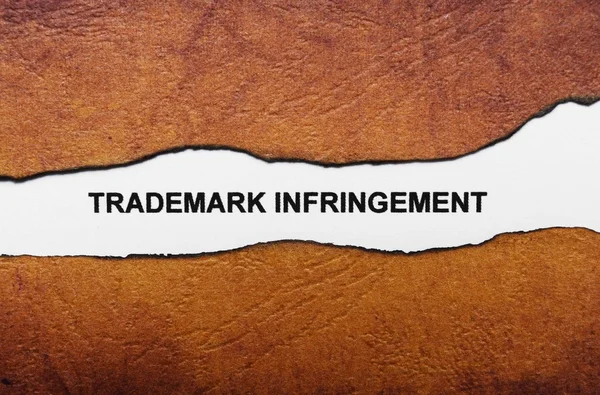What is Trademark infringement?
A trademark is the identity of any brand; therefore, the law is strict about its novelty and uniqueness. Using a trademark that is identical to or confusingly similar to a registered trademark for identical or nearly identical goods or services constitutes trademark infringement. The Indian Trade Marks Act, 1999's Section 29 discusses several aspects of registered trademark infringement.
Section 29(1) states, "a registered trademark is infringed by a person who, not being a registered proprietor or a person using by way of permitted use, uses in the course of trade, a mark which is identical with, or deceptively similar to, the trademark in relation to the goods or services in respect of which the trademark is registered and in such manner as to render the use of the mark likely to be taken as being used as a trademark".
What are the grounds for trademark infringement?
The following are the grounds for trademark infringement in India according to Section 29 of the Trade Marks Act, 1999:
- If a mark registered for comparable goods and services is identical to the unregistered mark.
- Consumer misunderstanding will likely result from an unregistered mark's similarity to the infringing mark.
- The unregistered mark is comparable to a registered trademark with market recognition.
- Without permission, the registered brand is utilised on packaging or labelling.
- The registered trademark is used in advertisements, often at the expense of or in opposition to the trademark's reputation.
Some famous examples of trademark infringement
Here, we have listed four famous cases of trademarks in India.
Case 1: Yahoo! Inc. v. Akash Arora & Anr
This case is one of the earliest cases involving cybersquatting, where the defendant started offering a similar kind of service that the Plaintiff offers, using a similar domain name.
One of the most significant judgements on trademark passing off through domain names was handed down because the respondents were using the domain name "yahooindia.com," which was identical to the Plaintiff's brand "Yahoo." On the other hand, the respondents asserted that the offered services did not fit the Indian Trademark Act's definition of good. On the other hand, Yahoo received an injunction because web services are viewed as goods by governments worldwide.
The Court restricted the defendant from using a deceptively similar domain name.
Case 2: Happy Belly Bakes vs. Amazon
In Bengaluru, a part-time baker launched her enterprise in 2008—the bakery, whose name is Regalar, which translates to "The Gift" in Spanish.
After one successful year, the owner decided to grow her company and establish her first store, which she renamed Happy Belly. She then pursued trademark registration and applied on July 14, 2015.
Amazon Inc., a global leader in e-commerce and technology, introduced the private labels Happy Belly, Wickedly Prime, and Mama Bear in June 2016.
The proceedings took four long years, but the lower Court gave an order in favour of Happy Belly Bakes.
Case 3: Coca-Cola Company vs. Bislery International Private Limited
This is one of our country's most famous trademark infringement cases, where the Coca-Cola Company (TCCC) has petitioned the Delhi High Court to prevent Bisleri International from violating the Maaza trademark in India. Additionally, TCCC has sought to prevent Bisleri and its affiliated companies from divulging the formula, know-how, and other intellectual property utilised to create Maaza.
The Court decided that Plaintiff had a prima facie case and a favourable balance of conveniences. The trademark rejection was deemed invalid, and Plaintiff was given exclusive trademark rights for the soft drink MAAZA.
Case 4: Starbucks Corporation v. Sardarbuksh Coffee & Co
Starbucks, the Plaintiff claimed that the defendant is carrying the same business with a logo deceptively similar to the Plaintiff's logo.
Starbucks, the Plaintiff, registered the word mark "STARBUCKS" and the associated logo as trademarks in India in 2001. 'Sardarbuksh Coffee & Co' was the name under which the defendants' business was founded in 2015. The wavy lines on the sides of a turban-clad commander's face were part of Sardarbuksh's emblem, encircled by a black circle.
The Court established several criteria to demonstrate misleading similarity, including the probability of confusion, goodwill, and others.
The Court awarded the Plaintiff a favourable judgement. It mandated that the company's name change from "Sardarbuksh Coffee & Co." to "Sardarji-Bakhsh Coffee & Co."
The Delhi High Court concluded that a man of ordinary intelligence might be confused, and thus it is deceptively similar.
What are the remedies for trademark infringement?
|
Civil Remedies |
Criminal Remedies |
|
Damages – The registered trademark owner will receive damages in the form of compensation. Profit Account- Damages in the form of revenue made from the goods or services that violated the trademark will be paid out. Destruction of products: If a trademark is violated, the destruction or erasing of products and services may also be ordered . Injunction - Ex parte or Interlocutory injunctions may be granted by the Court to compel the production of documents, prevent the defendant from disposing of any assets that could harm the Plaintiff, or preserve infringing goods and services. An injunction is a court order that limits the continued use of the trademark that has been violated. A local commissioner may be appointed, inventories and account books may be prepared, infringing products may be searched for and seized, and the Court may order other interim reliefs preventing the infringer from doing anything that would hurt the Plaintiff's chances of getting the costs and damages she's been awarded back from the infringer. Cost of Proceeding - The Court may require the defendant to pay the appellant's costs of the appeal. |
A fine that should not be less than 50,000 Rupees and that can be increased to 2 lakh Rupees, With a term of imprisonment that should not be less than six months and that can be extended to 3 years. |

